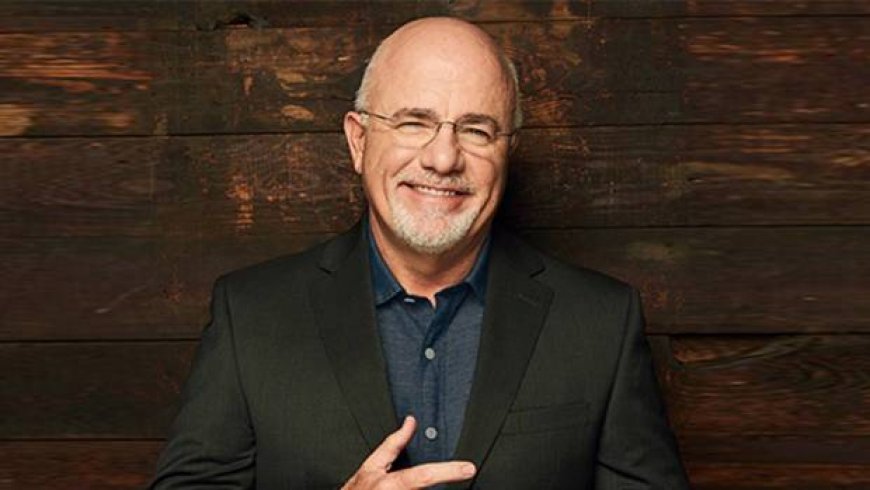Dave Ramsey Says Buying a House Can Be an Adventure With Options
Depending on a few factors, there are a number of good strategies.

Radio host and author Dave Ramsey consistently preaches the importance of getting out of debt.
He also encourages his listeners and readers to save for an emergency fund and concentrate on home ownership.
DON'T MISS: Dave Ramsey Weighs In With Tough Words On Student Loans
These pieces of advice combined July 19 when a caller to The Dave Ramsey Show asked him for a recommendation about what his next financial move should be.
"I'm in a particular place in life where I've got a year or two left on my education. My wife's got a year," the caller, identifying himself as James, said. "We're both working full time and we're both invested in our 401(k) options and match options with our jobs and we know we're going to want to buy a property or a house one day down the road."
"So we're trying to figure out, like, do we go full 15% or more in our 401(k) and still try and save for the house?" he asked. "Or should we try to nickel and dime and go as hard as we can with just getting our matches and our 401(k) options and then put all we can into savings for a house? Which option would you guys recommend based on where we're at?"
"So you guys have no debt and a fully funded emergency fund already?" George Kamel, Ramsey's co-host for the day, asked.
"Yeah no debt, fully-funded emergency fund," James replied.
Saving For the Down Payment
Kamel told him, based on that information, that he believes James is ready to start saving up for a down payment.
"Truthfully, this is kind of a choose-your-own-adventure.'" Kamel said. "You could invest anywhere from zero to 15%, and the faster you get the down payment saved, the faster you get back to investing. It really comes down to your urgency on getting into a house."
Ramsey agreed with Kamel's assessment.
"We don't want to put more than 15%, but anything less than 15% is okay," Ramsey said. "So George is right. Choose your own adventure. You could do the match and no more."
"You could do nothing and just pile up a big old stinking down payment for the next 24 months," Ramsey continued. "During that 24 months you're going to finish your educations, probably get raises and set you up to make your house, buy it, and then step back into that 4O1(k) with 15% and start paying off that new 15-year mortgage as fast as possible."
The caller said he was encouraged to hear the radio personalities' point of view.
"I didn't know if it was bad to go down to just the match," he said. "I guess that was what my worry was."
Ramsey emphasized that because James was out of debt, he was in a relatively good position.
"You don't have that debt so you're sitting squarely at this place where it's a temporary thing. It's a one-, two-year time period while you're saving for your down payment on your home," he said. "The larger the down payment, obviously, the smaller the debt. Hopefully you don't buy more house.
"But yeah, that puts you in a position to really go win with that," Ramsey said. "Choose your own adventure -- that's a really good way of looking at it."
Kamel said he had always seen it that way.
"There are really three options: zero percent and really stack up, or do the match then stack up, or fifteen percent," he said. "You can do somewhere in between the two, but most people do one of those three options. I personally like trying to hit that mark of 15% and then getting even more intense on the down payment. But I'm just wired weird."
Ramsey suggested that age is a factor when making decisions along these lines.
"Well, I might say which one I like more based on how old I was," he said. "If I'm in my twenties, I'm good with zero, because you've got plenty of time for compound interest to kick in on the investing later."
"I could go to zero easier when you're 25 than when you're 55," Ramsey added.
Common Characteristics of Millionaires
Ramsey then talked about common traits he has found when talking with millionaires.
"There's two major things, folks, that we find with the millionaires that we've studied that cause them to become millionaires," he said. "One is steadily investing in retirement and good mutual funds -- 4O1(k)s, IRAs. Right? Steadily, over time, investing."
"The second thing is a paid-for house," Ramsey explained. "Those two are the biggest two elements that we see, that cause people to be millionaires. The typical millionaire we studied was 51 years old."
"There's a lot of reasons that those two things show up with millionaires all the time," he added. "Because they're both really good wealth-building tools, but they follow the idea of slow-and-steady wins the race. Not the hare. The tortoise wins every time I read the book."
Get exclusive access to portfolio managers and their proven investing strategies with Real Money Pro. Get started now.
What's Your Reaction?



























































